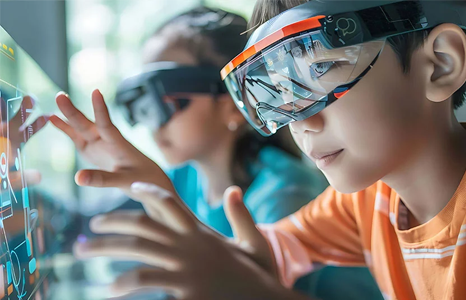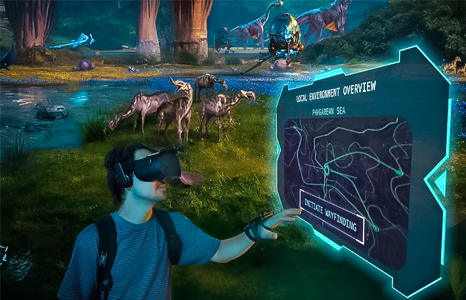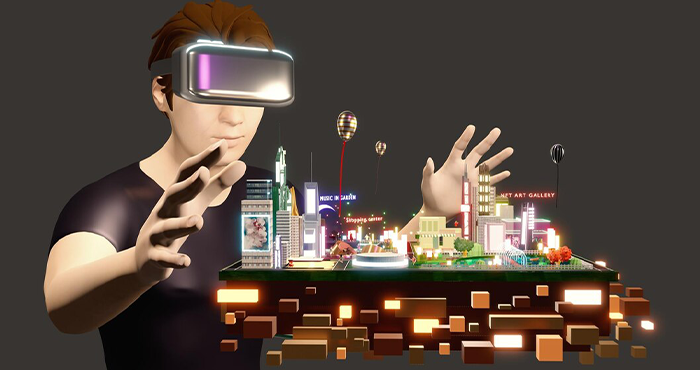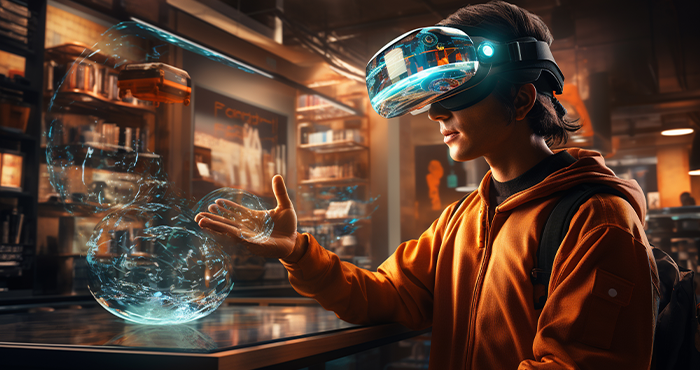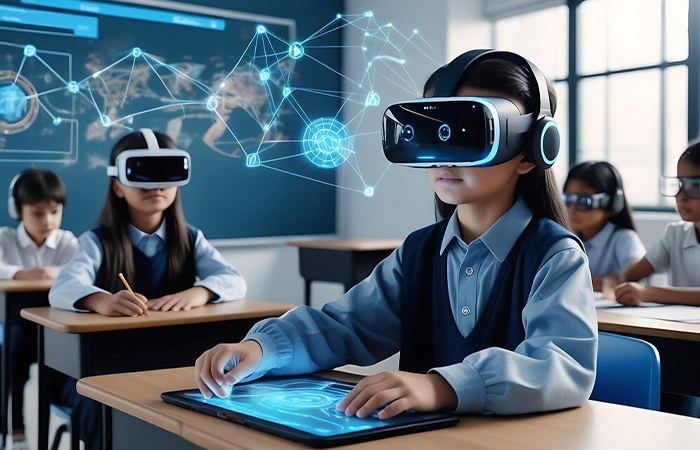
K-12 Content Library
Our K-12 content library includes immersive experiences across various subjects:
Higher Education Content Library
Our higher education content library is focused on providing immersive content for specialized fields:

Engineering
Virtual labs for mechanical, civil, and electrical engineering that simulate real-world problems and allow students to practice hands-on skills.

Nursing & Healthcare
VR clinical simulations, AR-guided medical procedures, and interactive patient care modules that offer real-world training in a risk-free environment.
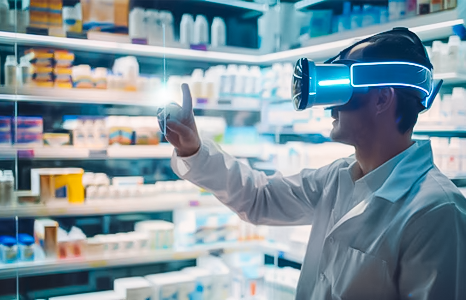
Pharmacy
Immersive simulations of compounding, dispensing medications, and understanding pharmacology in 3D environments, helping students build crucial skills before entering .
Use Cases for AR/VR/MR in Education
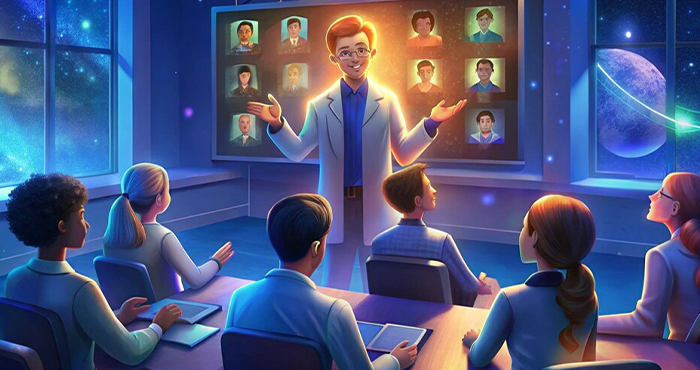
Virtual Classrooms & Distance Learning
Transforming Remote Education with VR
Virtual classrooms provide immersive environments where students can learn as if they are in a physical classroom, but from any location. Teachers can lead interactive lessons where students collaborate, experiment, and learn in an engaging, 3D space.
Use Cases
K-12
Students can explore biological processes like cell division or the human cardiovascular system in 3D, making it easier to grasp complex scientific topics.
Higher Education
Engineering students can visualize mechanical structures, chemical reactions, or architectural designs in 3D, enhancing their ability to learn complex technical details.
Pharmacy
Students can explore the molecular structures of compounds, see how medications interact with the human body, and learn the intricacies of drug formulations.
Virtual Laboratories for STEM Education
Perform Experiments in a Safe, Risk-Free Environment
Virtual labs provide an interactive environment where students can perform experiments and simulations that would otherwise require expensive equipment or involve safety risks. In these virtual settings, students can repeat experiments, make mistakes, and learn at their own pace.
Use Cases
K-12
Chemistry experiments, physics simulations, and biology dissections can be performed in a virtual lab, providing a rich learning experience without the risks or costs of a physical lab.
Higher Education
Engineering students can test prototypes, run simulations, and tweak designs in a virtual environment, while nursing students can simulate clinical procedures.
Vocational Training
Pharmacy students can work in virtual compounding labs, creating medications and testing their efficacy in a controlled, digital space.
AR/VR for Skill-Based Learning & Vocational Training
Enhancing Practical Skills Through Immersive Simulations
AR/VR/MR technologies are essential for vocational training programs that require students to develop hands-on skills. These technologies provide a risk-free environment where students can practice essential skills, receive real-time feedback, and perfect their techniques before entering real-world environments.
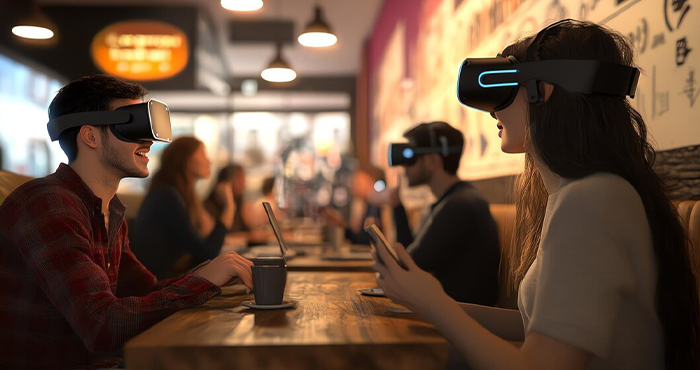
Use Cases
Nursing
Virtual simulations of clinical procedures, patient care, and emergency responses allow nursing students to gain hands-on experience in a safe, controlled setting.
Engineering
Mechanical and civil engineering students can work on virtual projects, constructing and testing structures before building them in real life.
Pharmacy
Pharmacy students can use virtual labs to practice compounding, dispense medications, and understand the workflow of a pharmacy environment.
Global Adoption of AR/VR/MR in Education
Educational institutions across the world are adopting AR, VR, and MR to improve learning outcomes and engagement:
United States
China
South Korea
Finland
These global examples demonstrate how immersive technologies are reshaping education and creating a more interactive, accessible, and inclusive learning environment.
We also offer custom content development services, where institutions can collaborate with Qvolv Technologies to create bespoke AR/VR/MR modules tailored to their curriculum.
Why Choose Qvolv Technologies for Your Educational Institution?
Qvolv Technologies is dedicated to transforming education through immersive technologies that improve learning outcomes, enhance engagement, and make complex concepts accessible. Our solutions are designed to help institutions of all levels—from K-12 schools to universities—embrace the future of education with AR/VR/MR.
Contact us Today to learn how we can help your institution implement the next generation of learning experiences.



